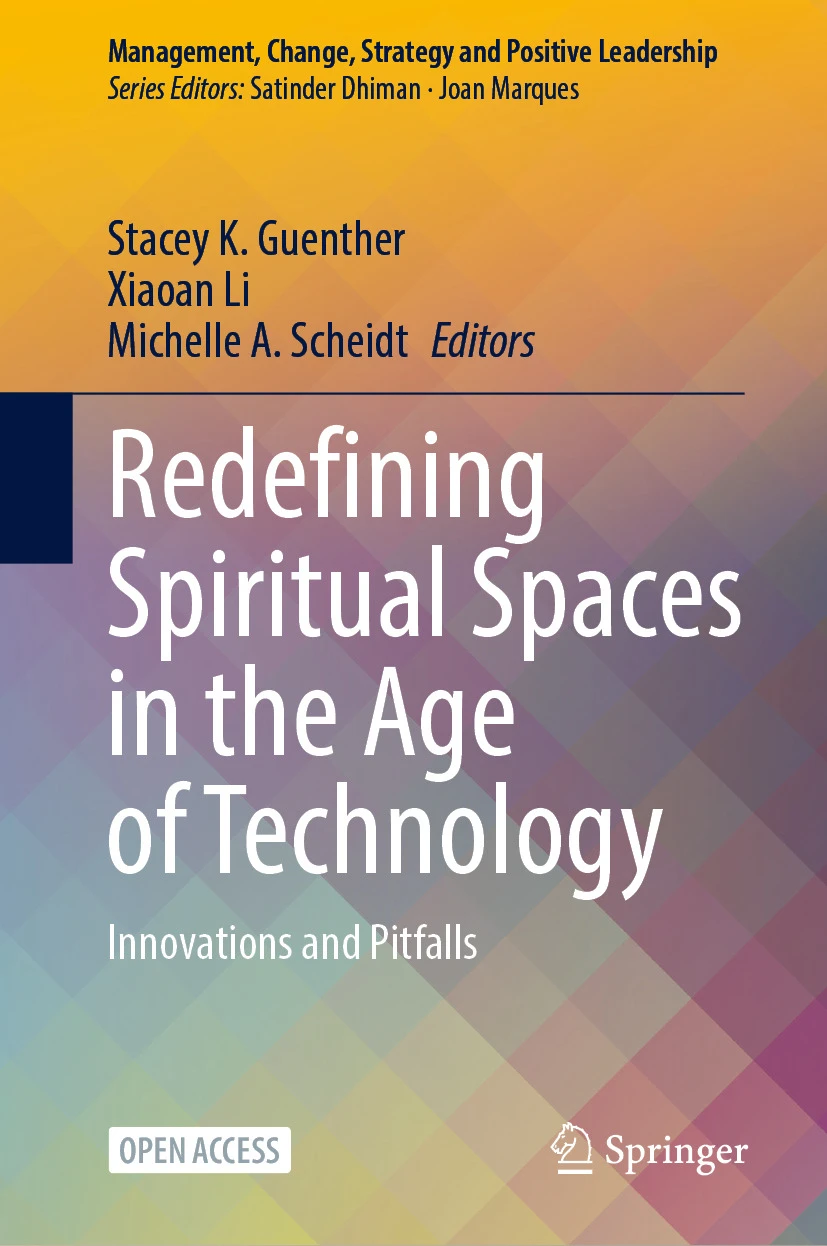
As emerging technologies continue to shape various aspects of human life, a new open-access book explores a significant question: How is technology transforming our experience of the Sacred?
Published by Springer with support from the Fetzer Institute, Redefining Spiritual Spaces in the Age of Technology: Innovations and Pitfalls brings together leading scholars, practitioners, and spiritual innovators to explore how technology is reshaping spiritual life, leadership, and community across a wide range of sectors — from education and healthcare to racial healing, justice work, and virtual spiritual practice.
Co-edited by Xiaoan Li (Fetzer Institute), Michelle Scheidt (Fetzer Institute), and Stacey Guenther (George Mason University and Awakened Impact), the book offers practical insights and visionary thinking rooted in profound spiritual wisdom.
“Technology can be a powerful ally in our spiritual journeys, if we engage it with care, discernment, and intention,” says Michelle Scheidt, Senior Program Officer at the Fetzer Institute. “This book invites readers to consider not only what’s possible, but also what’s sacred, as we navigate increasingly digital landscapes.”
The volume includes contributions from a wide range of field experts including Krista Tippett, Richard J. Davidson, Judi Neal, Kenneth Pargament, Heidi A. Campbell, Linda Lantieri, Meena Srinivasan, Wendy Cadge, and Fetzer’s Marketing and Audience Outreach Officer, Sarah Lee, whose chapter, ”Virtual Healing Experiences in a Dual Pandemic,” explores how meaningful spiritual connection can flourish in digital spaces.
The book explores a range of timely and urgent themes, including how spiritual leaders and communities are adapting to hybrid and digital formats, as well as how technology can serve as a tool for healing, justice, and liberation.
It further explores the expanding role of online spiritual spaces in fostering racial healing and identity work, while also addressing the potential pitfalls of digital spiritual life, such as disembodiment, distraction, and disconnection. Throughout, the contributors offer concrete practices for creating and sustaining sacred space across digital platforms, emphasizing that technology, when approached thoughtfully, can deepen rather than diminish spiritual connection.
“This volume is both a roadmap and an invitation,” adds Xiaoan Li, Senior Program Officer at Fetzer. “Spiritual development and technological advancement don’t have to be in tension; they can evolve together in ways that serve humanity and the sacred.”
Endorsements from Leading Thinkers
“I have been astonished to feel the presence of the sacred flowing into the virtual spaces where I have been teaching, braiding us together in a true version of beloved community. This insightful collection affirms the magic.”
— Mirabai Starr, Author of Wild Mercy and Ordinary Mysticism
“What forms of spiritual nourishment and community will help us achieve a liberated future? And how might the technology so central to our lives help create the sacred spaces that such a future requires? Those are the central questions of this important book. Here, you’ll find compelling reports from a diverse collection of pioneers who understand how urgent it is to keep the divine-human connection alive in an age where information abounds, but wisdom remains hard to find. It’s a book that builds a vital bridge between ancient wisdom traditions and today’s cutting-edge technological breakthroughs.”
— Parker J. Palmer, Author of A Hidden Wholeness, Let Your Life Speak, and Healing the Heart of Democracy.
“It is a must-read for anyone who cares about the future of our collective spiritual lives. I cannot recommend it highly enough.”
— Rev. Jen Bailey, Founder, Faith Matters Network and author of To My Beloveds: Letters on Faith, Race, Loss and Radical Hope